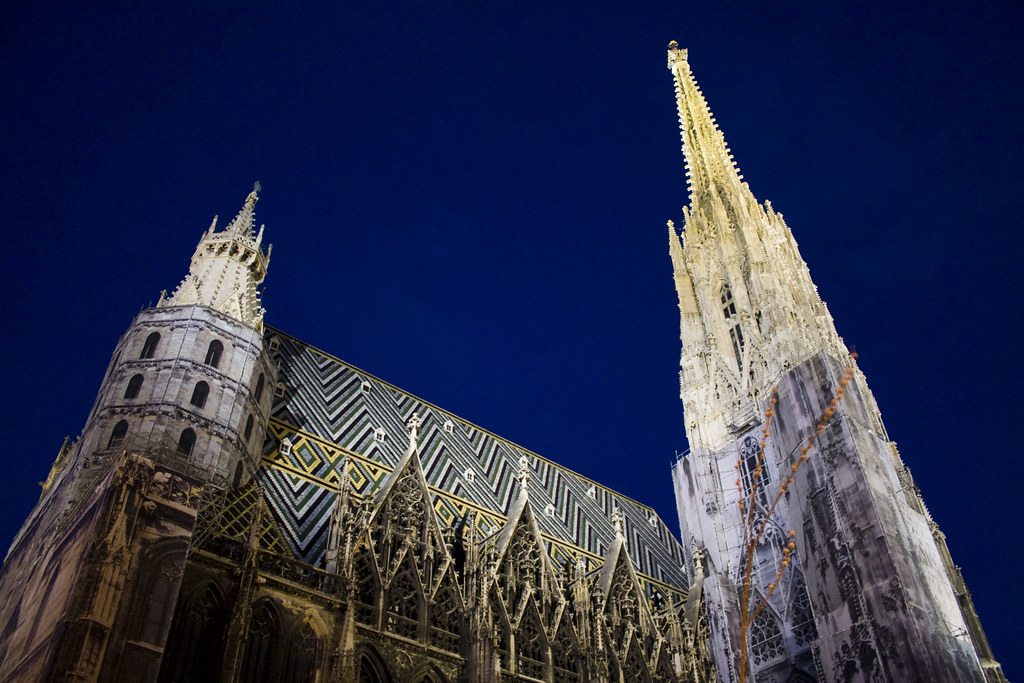
Stephansdom Stephansplatz, Vienna, Austria 28 March 2010 alphis tay
The area on Stephansplatz around the cathedral was originally a graveyard - making it the dead centre of Vienna in a very literal sense. But with plague and influenza epidemics striking Europe in the 1730s, Karl VI ordered the graveyard be closed and henceforth Vienna buried its dead beneath Stephansdom in the 'New Tombs', which in the 19th century became more wistfully known as.
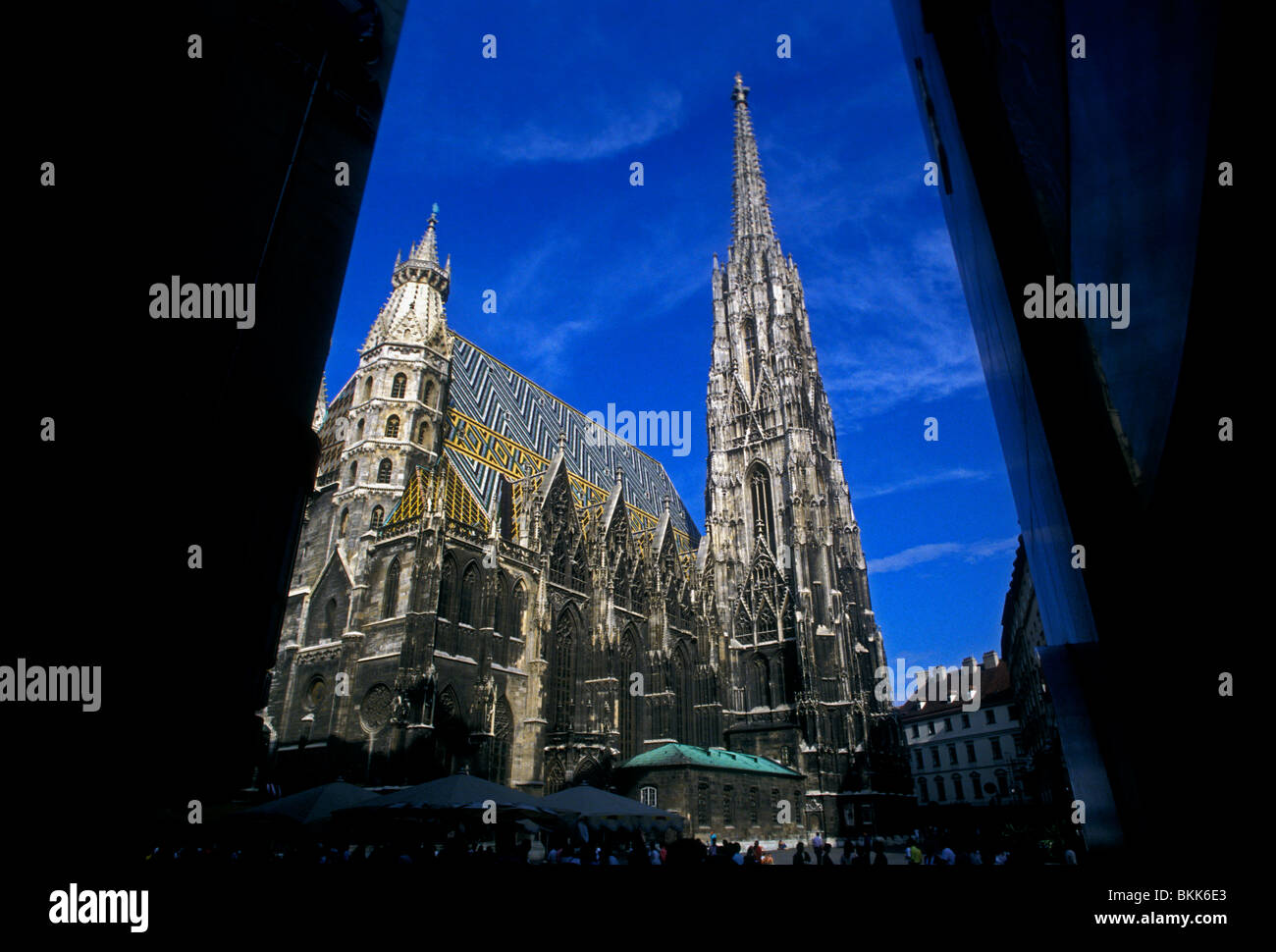
Saint Stephen's Cathedral Stephansdom Saint Stephen's Square
St. Stephen's Cathedral in Vienna St. Stephen's Cathedral, better known as Stephansdom or Steffl, is one of the tallest buildings (its South Tower is 137 metres high) and top landmarks in Vienna. It is located at Stephansplatz, in the middle of Vienna's 1st district, Innere Stadt. View from Stephansdom to Vienna City Hall (Rathaus) The.

Detail of Famous St. Stephen`s Cathedral Wiener Stephansdom at
Famous St. Stephen's Cathedral, or Stephansdom, as it is known locally (also affectionately called Steffl by Viennese), is a central landmark of Vienna and one of the most recognizable attractions. It is a symbol of Vienna and a remarkable part of the city's skyline. Located in Stephansplatz, it dominates the area with its splendor.. Originally built in the 12th century, the cathedral has.
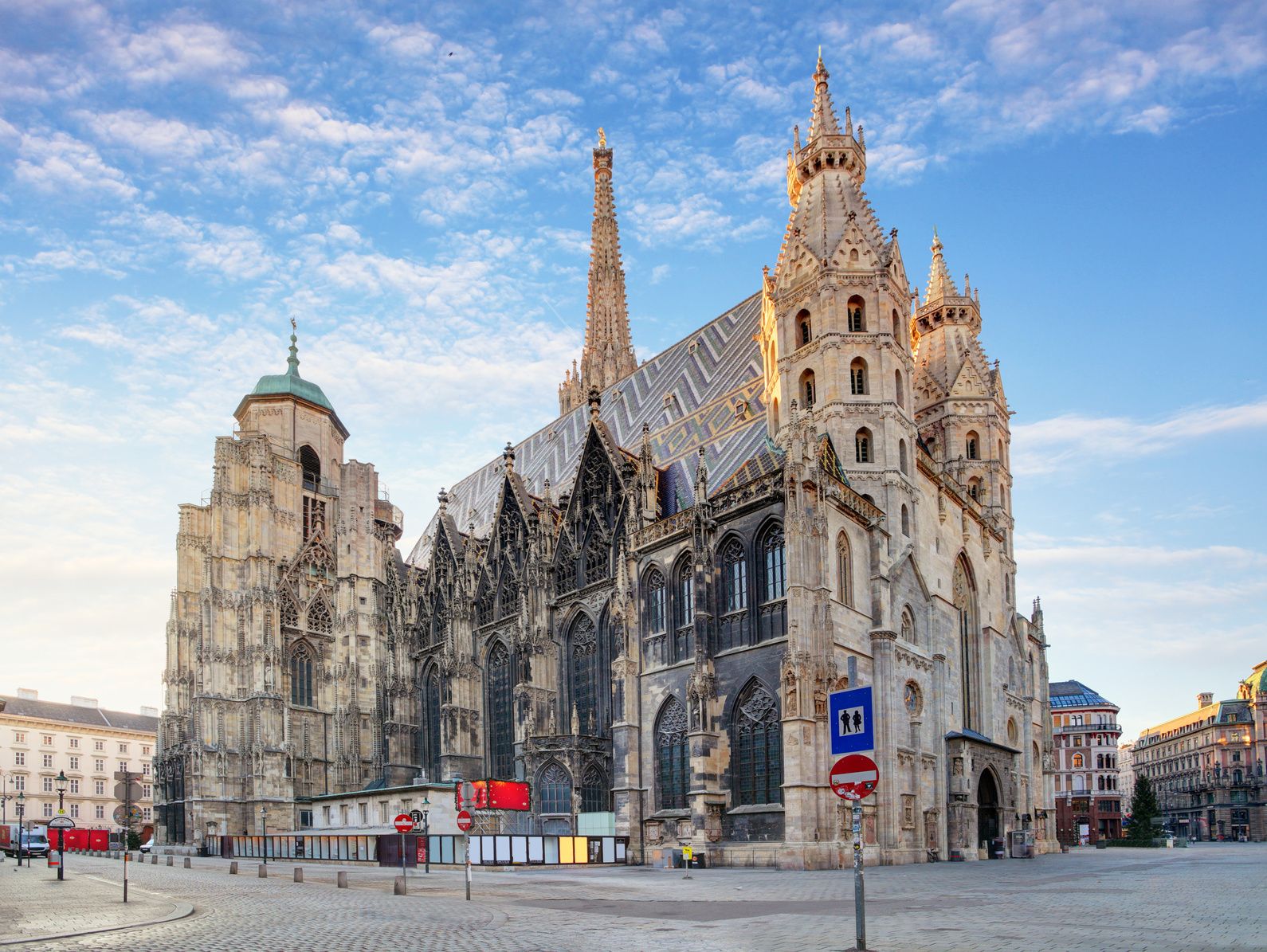
13 Top Sehenswürdigkeiten in Wien 2019 (mit Fotos & Karte)
Vienna's Stephansdom cathedral contains altars, statues, and all the other accumulated treasures of an ancient cathedral. It also houses the remains of around 11,000 people in its catacombs: you can visit them on a tour. Intriguing visit to the cathedral crypts. Expect coffins. Urns. And (lots of) bones.
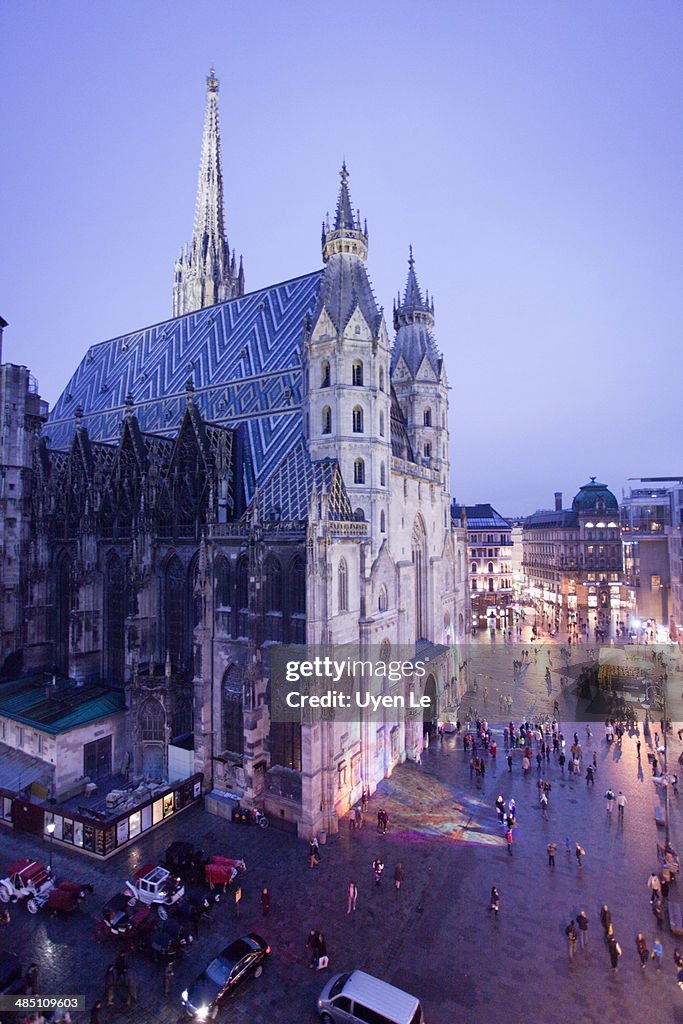
Stephansdom Stephansplatz Vienna Austria Foto de stock Getty Images
4K UHD tour inside the St. Stephen's Cathedral or Stephansdom. Is the mother church of the Roman Catholic Archdiocese of Vienna and the seat of the Archbisho.
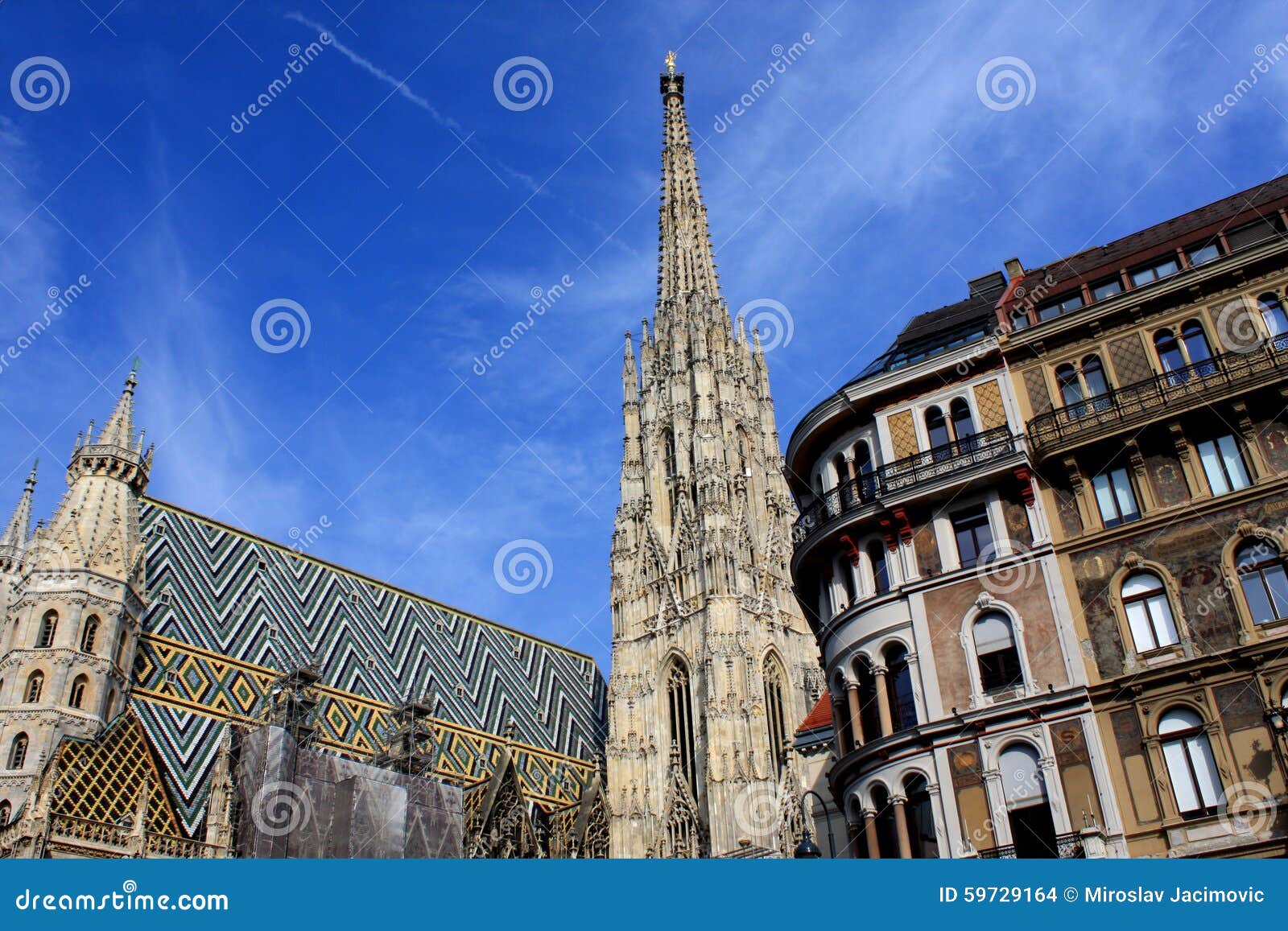
Stephansdom Cathedral on Stephansplatz in Vienna Austria; Stock Photo
Stephansplatz is a square in the center of Vienna. It is named after its most prominent building - the Stephansdom - Vienna's main cathedral and one of the tallest churches in the world. Here you have exclusive shopping streets, modern and medieval architecture.

Stephansdom and Tourists on Stephansplatz, Vienna Editorial Photography
The cathedral was built in the 12th century and has seen many changes and additions over the centuries. During the Second World War, the cathedral suffered heavy damage, and restoration work continued until 1960. Today, the Stephansdom is one of the most significant landmarks in Vienna and is a symbol of the city's resilience and endurance.

Stephansplatz and Stephansdom Cathedral in Vienna Above the City
Vienna. The Cathedral and Diocesan Museum of Vienna is a treasure trove of religious art pieces spanning a period of more than 1000 years. Among the collection's extraordinary exhibits are the earliest European portrait - of Duke Rudolf IV (1360) - and two Syrian glass vessels (1280-1310), thought to be among the oldest glass bottles in.

Stephansdom and Stephansplatz, Vienna, Austria, Editorial Editorial
The nave of the Stephansdom is 108 meters (354 feet) long and impresses thanks to its Gothic vaulted ceiling, which reaches a height of about 27 meters (88 feet). Central nave. The stone Gothic pulpit, sculpted in 1514 by master stonemason Anton Pilgram is most likely to first catch the attention of visitors.
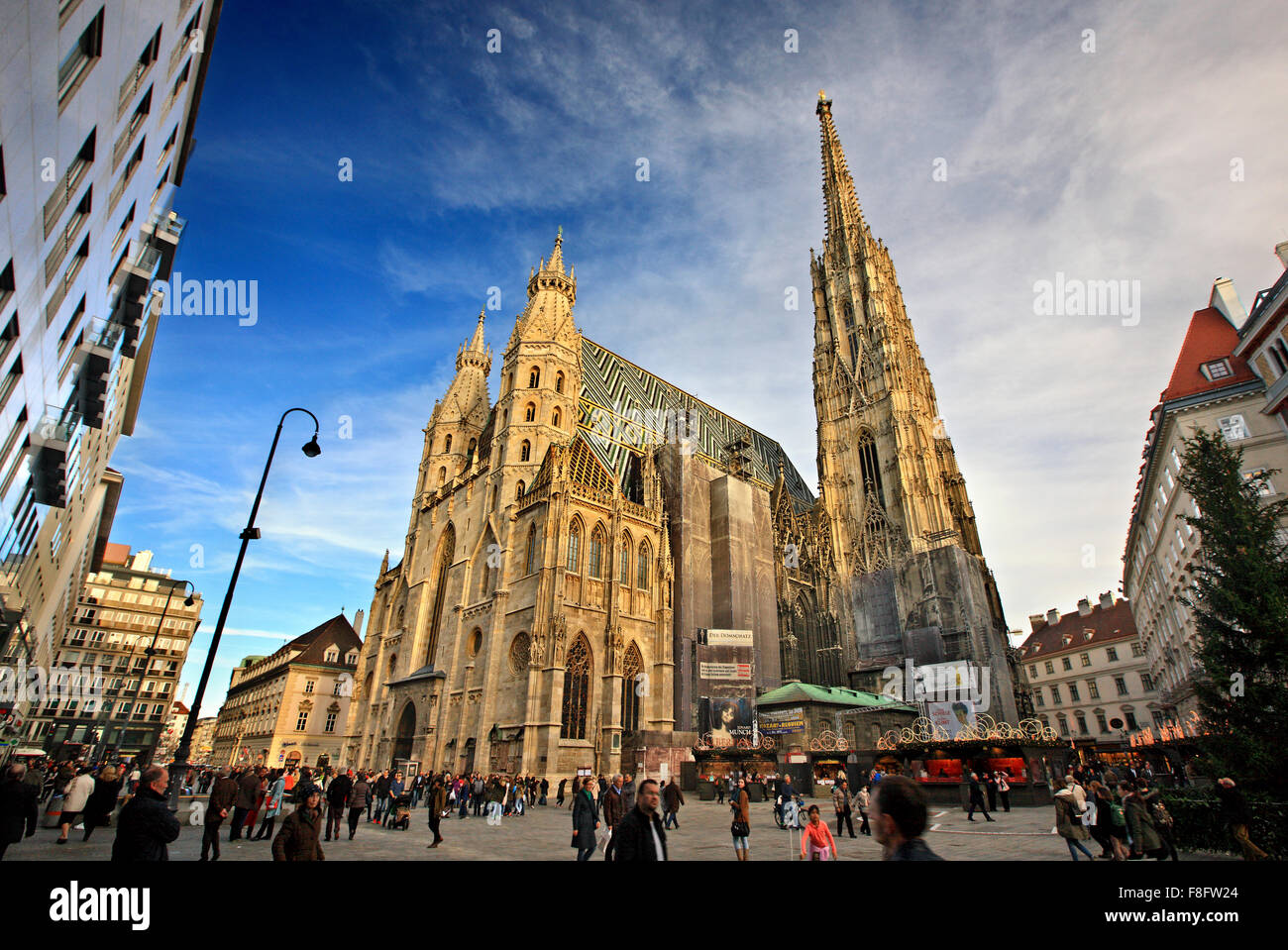
Stephansdom (St Stephan's Cathedral), Stephansplatz, Vienna, Austria
Stephansplatz, Vienna. The Stephansplatz is a square at the geographical centre of Vienna, Austria.It is named after its most prominent building, the Stephansdom, Vienna's cathedral and one of the tallest churches in the world.Before the 20th century, a row of houses separated Stephansplatz from Stock-im-Eisen-Platz, but since their destruction, the name Stephansplatz started to be used for.

Vienna, Austria, Europe St. Stephen& X27;s Cathedral or Stephansdom
Nearby Vienna attractions. 1. Stephansdom Katakomben. 0.04 MILES. The area on Stephansplatz around the cathedral was originally a graveyard - making it the dead centre of Vienna in a very literal sense. But with plague…. 2. Cathedral Pummerin. 0.05 MILES.
FileWien Stephansdom (1).JPG Wikimedia Commons
The Stephansdom Tour. If you want to see 14th-century stained glass, a 15th-century pulpit, a 16th-century sarcophagus, 17th-century choir stalls, and the chapel where they baptised two of Mozart's children, then grab your audio guide and step this way for the self-guided Stephansdom tour…. Pass through the barriers to get close to the main.

Cattedrale Di Stephansdom St Stephen Su Stephansplatz a Vienna, Austria
The Pummerin bell. St. Stephen's Cathedral (German: Stephansdom [ˈʃ͡tɛfansˌdoːm]) is the mother church of the Roman Catholic Archdiocese of Vienna and the seat of the Archbishop of Vienna, Christoph Cardinal Schönborn, OP.The current Romanesque and Gothic form of the cathedral, seen today in the Stephansplatz, was largely initiated by Duke Rudolf IV (1339-1365) and stands on the ruins.

Stephansplatz Stephansdom Cathedral Vienna City Downtown Main City
The vast Stephansdom crypt is divided into a number of smaller crypts and catacombs, and is still an active burial spot.. Stephansplatz 3 Vienna, 1010 Austria 48.2080, 16.3729 View on Google.
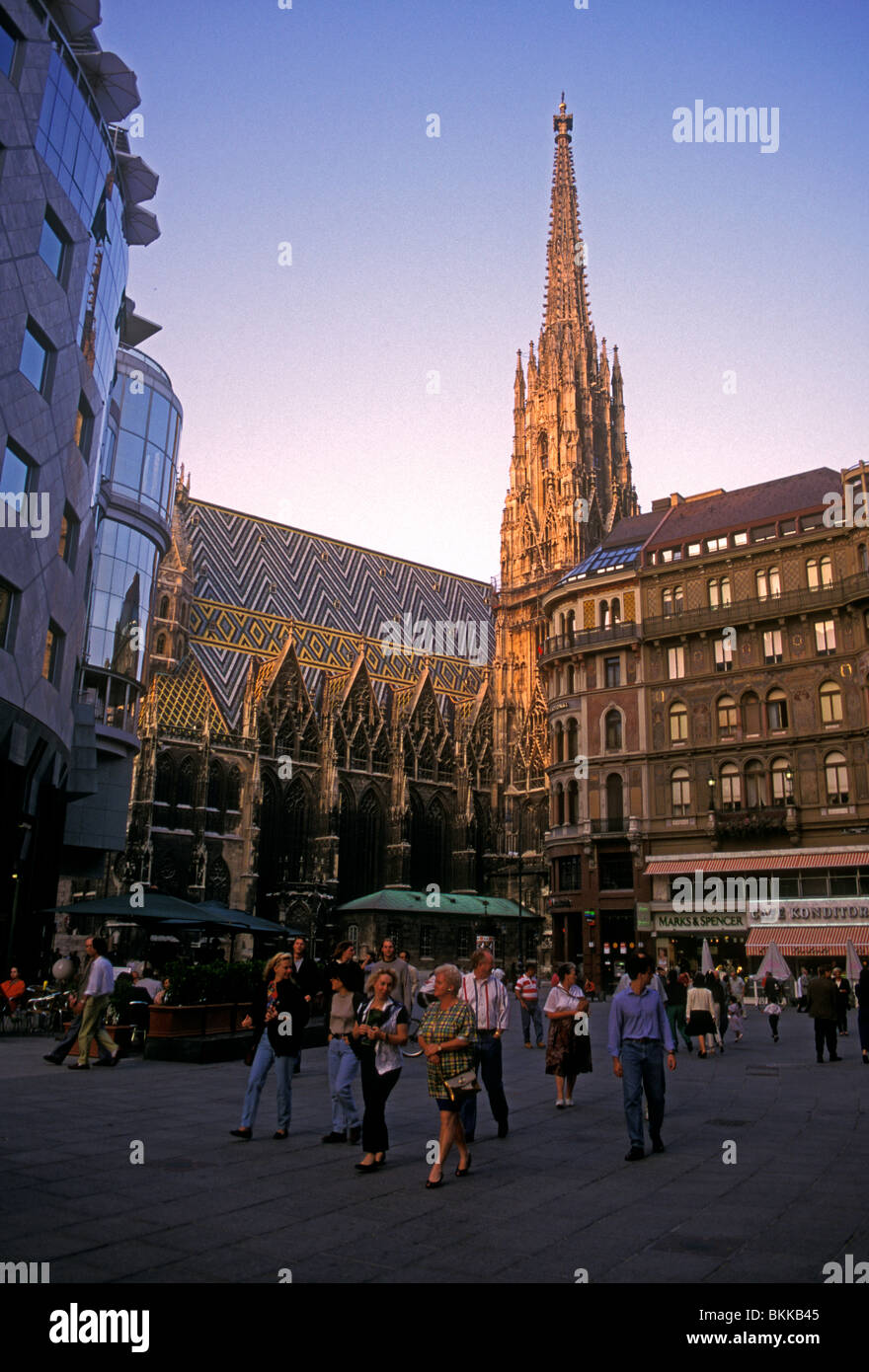
Saint Stephen's Cathedral, Stephansdom, Saint Stephen's Square
St. Stephen's Cathedral is the symbol of Vienna and also the very center of the city. At 136 meters in height, it is the tallest church in Austria. St. Stephen's Cathedral in the heart of the inner city is 107 meters long. The tallest of its four towers is the south tower at 136 meters. The tower room, from which there is a gigantic view across.
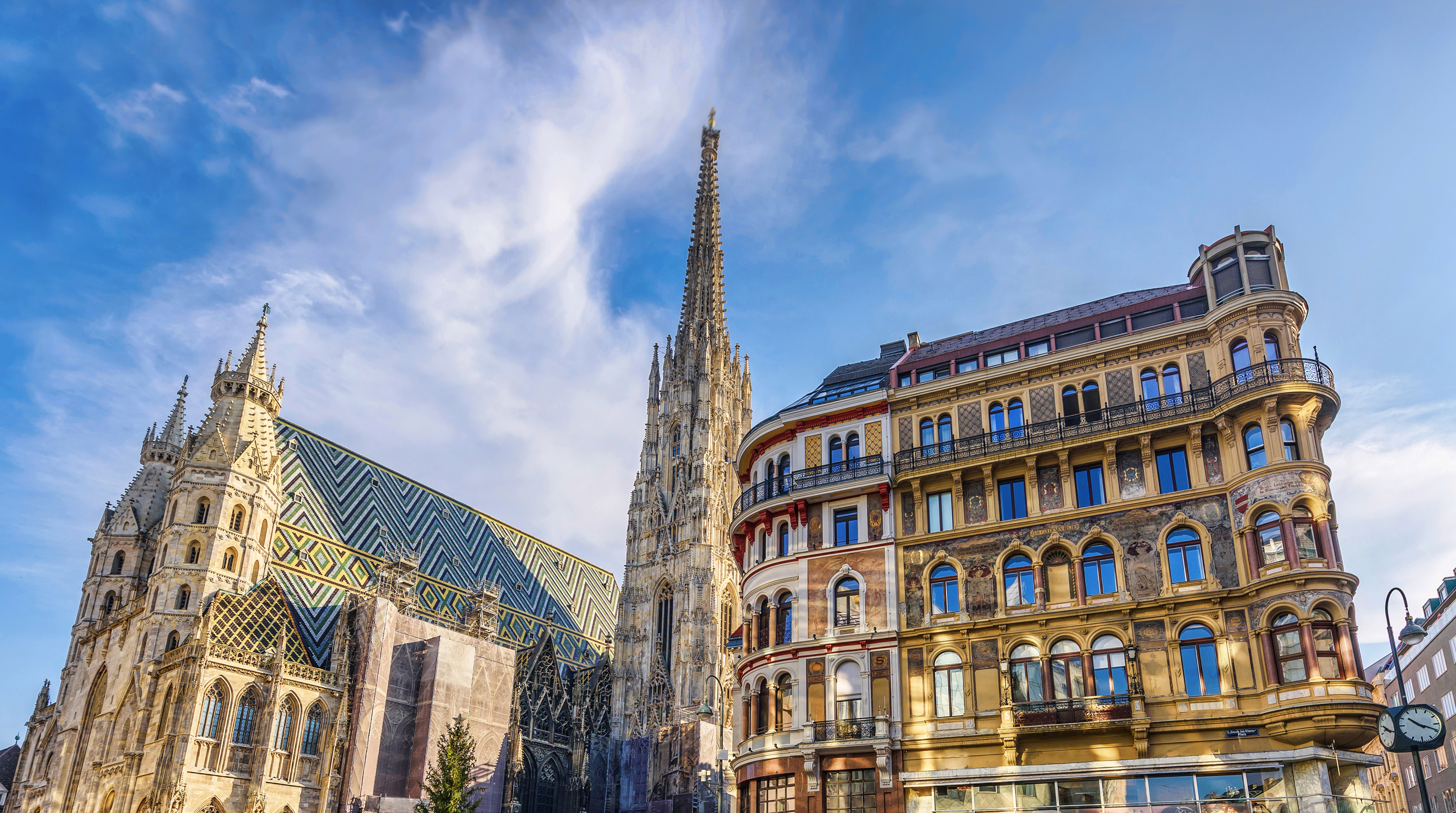
Free photo Saint stephen cathedral on stephansplatz in vienna
Stephansdom accompanied Vienna through much of the city's history, with the initial foundation stone dating back to 1137. (Main nave and south tower viewed from Stephansplatz square) That original 12th-century church is no more, though the current incarnation has its origins in the mid-13th century; the main entrance door, for example, dates back to this time.